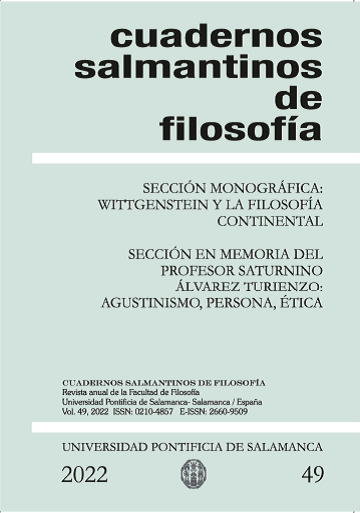Hegel and Wittgenstein On God at the beginning of the world
Main Article Content
I argue that Hegel and Wittgenstein, each in their own specific way, used the idea of God at the beginning of creation as a complex analogy for other kinds of beginning, most notably the beginning of philosophical thought. Hegel’s Logic describes God’s mind before the creation of the world, i.e. God’s pure thinking. For a philosopher, beginning afresh means resolving to consider this kind of abstraction from the existence of the world. Wittgenstein, by contrast, says that the idea of a creator of the world does not explain anything. It marks the terminus ad quem of asking for explanations; we must not ask further who created the creator of the world. Wittgenstein generalizes this for any kind of reasoning: “Explanations come to an end somewhere.” (Philosophical
Investigations: §1) Any sort of explanation must eventually arrive at its terminus ad quem, which means only that any kind of reasoning must have its logical beginning.

